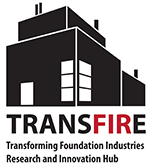Blue Skies, Greener Future: A Global Renaissance of Metallurgy: The Birth of Metallurgy 2.0
Speaker: Professor Zhongyun Fan
Metals are the backbone of global manufacturing and the fuel for economic growth. However, extraction and processing of metals are highly energy intensive and cause severe environmental damage: metal extraction accounts for 12% of global primary energy demand and 15% of global greenhouse gas emissions. The global grand challenge is to decouple economic growth from environmental damage. The worldwide sustainability crisis has led to a complete rethink of how we source, formulate and deploy metallic materials in the future, triggering a global renaissance of metallurgy and giving birth to Metallurgy 2.0. In this context, we have developed a vision for full metal circulation (FMC), under which the global demand for metallic materials will be met by a full circulation of secondary metals without the need for either mining or metal extraction.
Speaker: Prof. Zhongyun Fan is a professor of metallurgy, the founder and Director of BCAST at Brunel University London. He is the principal investigator/director of the EPSRC funded LiME Research Hub, a national centre of excellence in liquid metal engineering. He is also the principal investigator for the UKRI Interdisciplinary Circular Economy Centre for Circular Metals.
He has published over 400 scientific papers with an H-Index of 59 and a total citation of 14071 (Google Scholar). He has led a wide range of research projects as principal investigator with grants totalling over £70M.
He has been chairman of 4 major international conferences and members international scientific committee of 6 international conferences. He was the co-chairmen of the Casting and Solidification Society (IOM3, 2012-2018), is a Board Member of the Light Metals Division (IOM3), a Fellow of the Institute of IOM3 and the Institute of Cast Metal Engineers (ICME). He was the recipient of the Elegant Work Prize (1995), the Cook/Ablett Award (2003) and Dowding Medal and Prize (2012) of the Institute of Materials, Minerals and Mining (IOM3).


